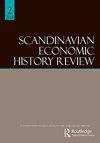将丹麦的正规教育和实践与农业创新联系起来(1860 - 1920):关于来源和方法的说明
IF 1
Q4 ECONOMICS
引用次数: 1
摘要
人们普遍认为,人力资本对产业发展和经济增长具有积极影响。但正规教育、工作实践、工业发展和经济增长以及随时间变化之间的关系仍不清楚,主要是因为缺乏经验证据。本说明认为,对丹麦乳制品行业的调查有助于我们进一步了解正规教育和实践的影响和局限性。它描述了可用于构建数据库的独特来源,反过来,数据库可用于对19世纪60年代至1920年代在学校和实践中学习的知识是否以及如何促进丹麦乳制品行业的技术变革、技术传播和生产力提高进行实证实实在在的调查,这个行业经历技术和产业转型的时期。这项计划中的调查的目的是填补丹麦史学的空白,但也有助于通过经验证据,并通过进一步发展知识和技术的概念,为更广泛的关于教育和实践在创新中的作用的文献做出贡献。本文章由计算机程序翻译,如有差异,请以英文原文为准。
Connecting formal education and practice to agricultural innovation in Denmark (1860s–1920): a note on sources and methods
ABSTRACT It is generally found that human capital has had positive effects on industrial development and economic growth. But the relationship between formal education, work practice, industrial development and economic growth, and changes over time, remains unclear, largely because of a lack of empirical evidence. This note argues that an investigation of the Danish dairy industry can contribute to further our understanding of the impacts and limitations of formal education and practice. It describes unique sources that can be used to construct a database, which in turn can be used to make an empirically solid investigation of whether, and how, knowledge learned at school and through practice contributed to technological changes, diffusion of technology and increased productivity in the Danish dairy industry from the 1860s to 1920, a period when this industry went through a technological and industrial transformation. The purpose of this planned investigation will be to fill a gap in Danish historiography, but also to contribute to the wider literature about the role of education and practice in innovation with empirical evidence, and by further developing concepts of knowledge and technology.
求助全文
通过发布文献求助,成功后即可免费获取论文全文。
去求助
来源期刊

SCANDINAVIAN ECONOMIC HISTORY REVIEW
ECONOMICS-
CiteScore
1.60
自引率
16.70%
发文量
20
期刊介绍:
Scandinavian Economic History Review publishes articles and reviews in the broad field of Nordic economic, business and social history. The journal also publishes contributions from closely related fields, such as history of technology, maritime history and history of economic thought. Articles dealing with theoretical and methodological issues are also included. The editors aim to reflect contemporary research, thinking and debate in these fields, both within Scandinavia and more widely. The journal comprises a broad variety of aspects and approaches to economic and social history, ranging from macro economic history to business history, from quantitative to qualitative studies.
 求助内容:
求助内容: 应助结果提醒方式:
应助结果提醒方式:


